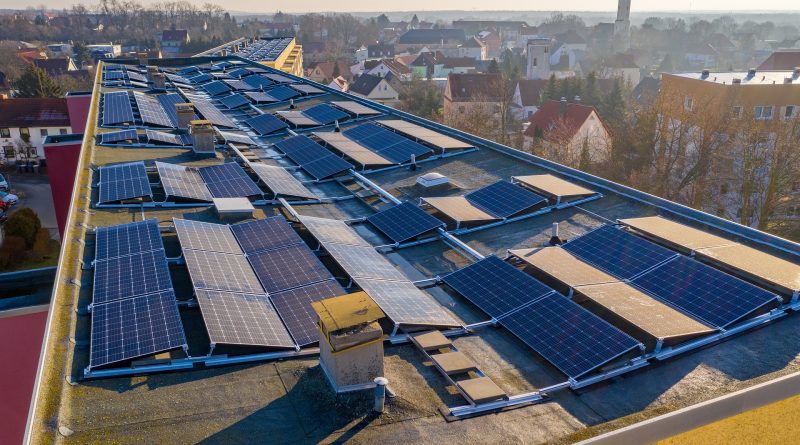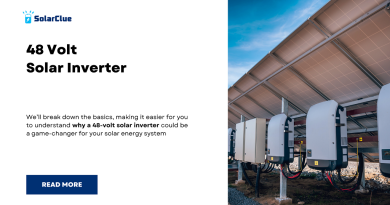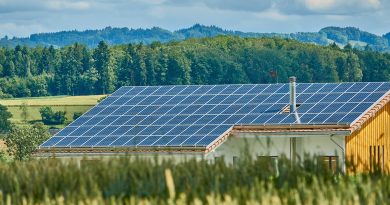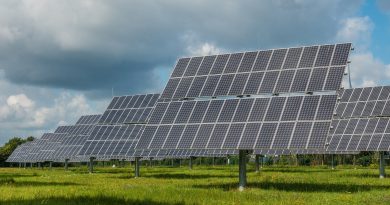Best Solar Power Plant: Choosing the Right Option
Table of Contents
Solar Power Plants: Understanding the Different Types
Solar power is a booming industry, providing a clean and renewable source of energy that has the potential to revolutionize the way we power our homes and businesses. As the demand for solar energy continues to grow, so does the need for solar power plants. However, not all solar power plants are created equal. In this blog, we will explore the different types of solar power plants and compare their advantages and disadvantages, helping you make an informed decision about which type of plant is best suited for your needs.
Photovoltaic (PV) Power Plants
PV power plants are the most common type of solar power plants, converting sunlight directly into electricity using photovoltaic cells. These cells are typically made of silicon and function by absorbing photons from the sun, which in turn creates an electric charge. PV power plants can range in size, from small-scale installations on rooftops to utility-scale plants spanning several acres of land.
One of the biggest advantages of PV power plants is their versatility. They can be installed on any surface that receives sunlight, making them suitable for both urban and rural areas. Additionally, PV power plants have a relatively low maintenance cost and a lifespan of 25-30 years. However, their efficiency is influenced by factors such as temperature and shading, making them less efficient in certain weather conditions or if partially obstructed.
Solar Thermal Power Plants
Solar thermal power plants, also known as concentrated solar power (CSP) plants, use mirrors or lenses to concentrate sunlight onto a receiver, which then converts the sunlight into heat. This heat is used to generate steam, powering a turbine that produces electricity. Unlike PV power plants, solar thermal power plants require direct sunlight to function optimally and are typically built in areas with high solar radiation.
One major advantage of solar thermal power plants is their ability to store excess heat, allowing them to continue generating electricity even during periods of low sunlight. Additionally, solar thermal power plants can be combined with existing power plants, such as those fueled by natural gas, to provide a more sustainable and reliable source of energy. However, the initial construction cost of solar thermal power plants is often higher than that of PV power plants, and they require a significant amount of land.
Floating Solar Power Plants
Floating solar power plants are a relatively new development in the solar industry and involve installing solar panels on bodies of water, such as lakes or reservoirs. These plants offer several advantages, including increased efficiency due to the cooling effect of the water and reduced evaporation levels. Additionally, floating solar power plants can be installed in areas where land availability is limited, making them an attractive option for densely populated regions.
One challenge faced by floating solar power plants is the need for specialized floating structures that can withstand water conditions. Maintenance and cleaning of the panels can also be more challenging in these installations. However, the benefits of increased efficiency and reduced land requirements make floating solar power plants an intriguing option for harnessing solar energy.
Conclusion
Empower your energy future by choosing the best solar power plant with SolarClue®. Consider factors like size, location, and energy needs, and our experts will guide you to the optimal solution. Whether on-grid for urban efficiency, off-grid for remote independence, or hybrid for enhanced reliability, SolarClue® tailors solar power plants to your preferences. Customize the system size, benefit from government incentives, and integrate seamlessly with existing power sources. SolarClue® ensures the best balance of efficiency, cost-effectiveness, and environmental sustainability. Contact us for a personalized consultation, and let’s embark on a solar journey that transforms your energy landscape.
Frequently Asked Questions
Consider factors like energy needs, available space, budget, and whether grid connectivity or energy independence is prioritized.
Proper sizing ensures optimal efficiency. Too small, and it may not meet energy needs; too large, and excess power may go unused.
Yes, solar power plants can be customized to match specific energy needs, with scalability allowing for future expansions.
Yes, types include on-grid, off-grid, and hybrid. On-grid plants connect to the utility grid, off-grid operate independently, and hybrids combine both.
Location influences sunlight availability, affecting the choice between on-grid for urban areas or off-grid for remote locations with limited grid access.
Inverters convert DC power from solar panels to AC power. High-quality inverters ensure efficient power conversion.
Yes, many regions offer incentives, tax credits, or rebates for solar installations, contributing to overall cost-effectiveness.
On-grid plants benefit from grid connectivity, while off-grid systems provide independence. The choice depends on location and preferences.
Yes, hybrid solar power plants can be integrated with conventional power sources for increased reliability during low sunlight periods.
Contact SolarClue® for expert guidance. Our team assesses your unique needs, recommends suitable options, and ensures a seamless transition to the best solar power plant for your requirements.




